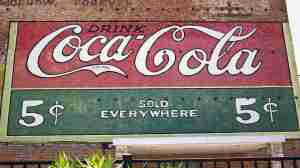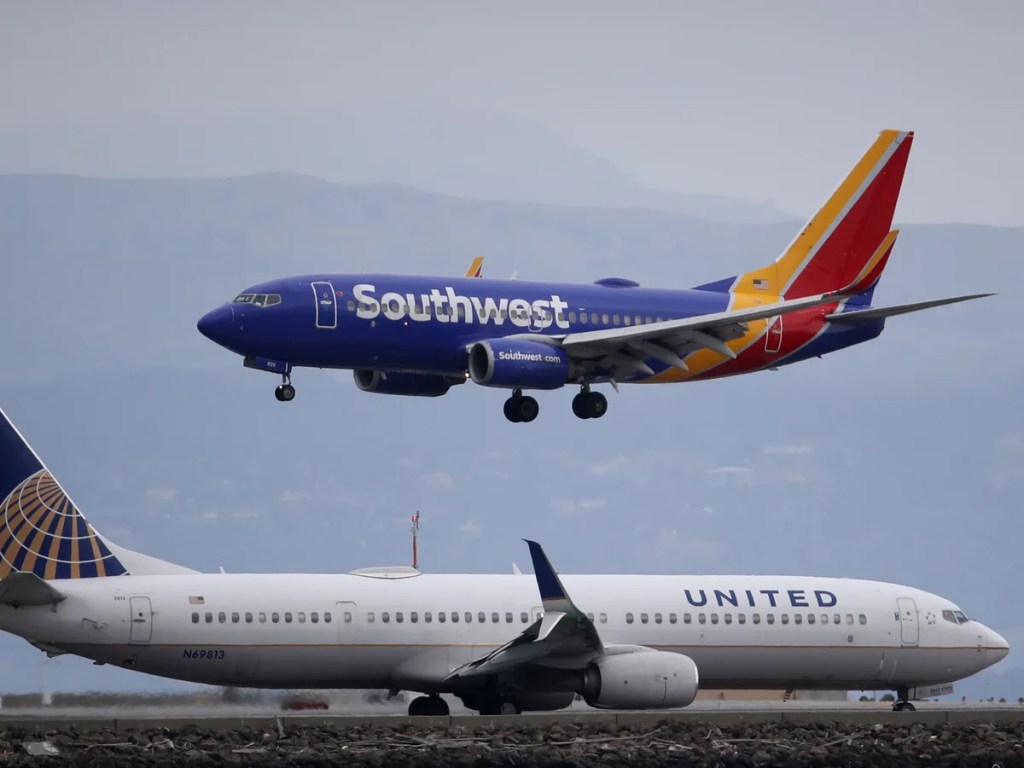Archive for the ‘Elasticity’ Category
Link: https://www.npr.org/2022/04/25/1094706897/you-should-probably-get-your-plane-tickets-soon
The Indicator this week discusses what is happening in the airline industry. After hard hits from COVID-19 they are finally expecting to make profits this year, but there are many factors that could crush those expectations. Limited staffing and picketing from fatigued pilots and higher jet fuel prices due to the limited supply of oil are just some of the major problems facing these airline companies. Ticket prices will go up as consumers bear the brunt of the oil shortage. Airlines are also cutting different flight paths as there is not enough incentive to keep servicing certain routes. The biggest take away is to book your tickets early and be prepared for rising prices.
Original Air Date: April 25, 2022
Length: 10 minutes 17 seconds
 Link: http://www.marketplace.org/2016/03/25/world/after-years-making-occulus-rift-arrives
Link: http://www.marketplace.org/2016/03/25/world/after-years-making-occulus-rift-arrives
Summary: Oculus Rift headsets for virtual reality are now in the market! Facebook owns Oculus and will be looking to take to Oculus Rift to the mainstream market next. In this podcast, Marketplace discusses the prospects and challenges ahead for these pioneers in virtual reality economy.
Original Date Aired: March 18, 2016
Length: 1 minute 53 seconds
 Link: http://www.npr.org/sections/money/2015/11/18/456410327/episode-416-why-the-price-of-coke-didnt-change-for-70-years
Link: http://www.npr.org/sections/money/2015/11/18/456410327/episode-416-why-the-price-of-coke-didnt-change-for-70-years
Summary: The Planet Money team investigates how the price of a Coke was able to stay at 5¢ for 70 years. In finding the explanation, the Planet Money team also considers the reasons for Coke’s global success.
Original Air Date: November 18, 2015
Length: 19 minutes 7 seconds
 Link: http://www.npr.org/sections/money/2015/03/11/392381112/episode-609-the-curse-of-the-black-lotus
Link: http://www.npr.org/sections/money/2015/03/11/392381112/episode-609-the-curse-of-the-black-lotus
Summary: Using common goods like magic cards, the NPR team demonstrates market bubbles and how they work as well as how one company deflated theirs.
Original Air Date: March 11, 2015
Length: 16 minutes 56 seconds
 Link: http://www.npr.org/blogs/money/2014/10/03/353300404/episode-573-why-textbook-prices-keep-climbing
Link: http://www.npr.org/blogs/money/2014/10/03/353300404/episode-573-why-textbook-prices-keep-climbing
Summary: Something strange is going on in the textbook market. The price has steeply increased over the past decade–and they’re only getting higher. There is a disconnect between the chooser (the professors) and the buyers (the students). Technically, the professor is the consumer, and they’re spending their students’ money. The podcast offers the opposite: high school textbooks, where costs are kept low because the books are paid for by the schools.
Original Air Date: October 3, 2014
Length: 14 minutes 56 seconds
Discussion Question/ Prompt: Propose a solution to the rising textbook price problem. (Example: a price ceiling? professor awareness of prices? incentives for lower prices?)
 Link: http://www.npr.org/blogs/money/2014/10/29/359624435/episode-578-how-to-steal-a-million-barrels-of-oil
Link: http://www.npr.org/blogs/money/2014/10/29/359624435/episode-578-how-to-steal-a-million-barrels-of-oil
Summary: The Nigerian Internet hosts many ads for stolen oil, inspiring the question: how? Why? Nigeria has one of the top oil reserves, and it is controlled by the government. They lose about $10 million a day from oil theft. This podcast dissects how they get away with it.
Original Air Date: October 29, 2014
Length: 19 minutes 30 seconds
Discussion Question: The podcasts says that this problem is for the Nigerian government to solve. Should it be an international issue?
Prompt: The podcast does not reflect on the legally sold oil, and the effect the stolen oil has on that market. Write how you think the stolen oil would change the market for legal crude oil in the international arena, paying specific attention to the quantity and the prices.

Link: http://www.npr.org/blogs/money/2014/01/24/265396928/when-a-65-cab-ride-costs-192
Summary: This podcast sheds light on supply and demand as well as elasticity using the well know car service Uber.
Original Air Date: January 24, 2014
Length: 4 minutes 9 seconds Note there is a longer version that addresses issues of fairness, rationing by time v. money, different profit maximizing strategies by firms
Discussion Prompt (1) for short or long version: Think about yourself as a consumer of Uber/Lyft services– how elastic is your demand for uber? How do you know? What factors do you think make your demand for an Uber ride more or less elastic? You can think about specific times, or you can think about comparing yourself to other people whose elasticity of demand might be different.
Discussion Prompt (2) for short or long version: This podcast focuses on the topic of ‘surge pricing’: how does this relate to price elasticity of supply? Is the supply of Uber drivers price elastic or inelastic? What factors might impact that?
Discussion Prompt (1) for long version: Planet Money asks this question: If this is how markets generally work (ex. Stock market, copper market), why is what Uber’s doing considered so strange? This podcast is from 2014 (useful to us because it explains Uber in detail because it was new). In the time that has passed, do you think people have come around to this ‘economic way of thinking’ about surge pricing? Why, why not?
Discussion Prompt (2) for long version: The podcast compares the pricing strategy of Home Depot with ‘ice salt/melt,’ where they don’t change the price but they do run out, to the strategy of Uber where they raise the price rather than ‘run out’. Economist Richard Thaler notes that these choices represent different profit maximizing strategies by firms focusing on long-run vs. short-run strategies. What does he mean here? How do these actions represent different profit-maximizing strategies by these firms? Do you think one is ‘more fair’?
Written Prompt: Read this related article: Cohen, P., Hahn, R., Hall, J., Levitt, S., & Metcalfe, R. (2016). Using big data to estimate consumer surplus: The case of uber (No. w22627). National Bureau of Economic Research. Part of what makes this article innovative, is that it provided a ‘real-life’ consumer surplus estimate drawn from actual consumer data. Why do you think that it might have been hard to determine consumer surplus in real life before Uber (and similar apps/services)? Can you make any other links between this article and the podcast?
 Link: http://www.npr.org/blogs/money/2014/11/28/366793693/episode-586-how-stuff-gets-cheaper
Link: http://www.npr.org/blogs/money/2014/11/28/366793693/episode-586-how-stuff-gets-cheaper
Summary: The Planet Money team looks at how some things get cheaper over time. The podcast hosts visit a company called Monoprice, whose job it is to find out ways to make things cheaper–in other words, a lot of detective work.
Original Air Date: November 28, 2014
Length: 14 minutes 11 seconds
Prompt: Write a brief letter to Monoprice with your thoughts on their job. Is it efficient? Is it cost-productive?
 Link: http://www.npr.org/blogs/money/2014/11/07/362060876/episode-581-free-money
Link: http://www.npr.org/blogs/money/2014/11/07/362060876/episode-581-free-money
Summary: This podcast discusses arbitrage (free money), using the example of used textbooks. Arbitrage (free money) is a risk-free way to buy low and sell high. You can find one thing that’s selling for two different prices, and exploit the mistake.
Original Air Date: November 7, 2014
Length: 14 minutes 29 seconds
Prompt: Imagine you find an opportunity like the one discussed in the podcast. Write an outline of how you would go about this discovery, and what your plan of action would be.
Discussion Question: A woman in the podcast said their practice was immoral. Do you agree or disagree? Is what these two men are doing wrong? Use economic thinking in your discussion.
 Link: http://www.marketplace.org/topics/economy/new-financial-innovation-housing-market
Link: http://www.marketplace.org/topics/economy/new-financial-innovation-housing-market
Summary: Large investors have started buying houses–in the past few years, they have bought almost 200,000 new homes. The strategy was to buy low, and set the rent high. Interestingly enough, housing prices have appreciated, and rental prices have stayed the same, which results in not as big of a profit for the investors. This has created what they call rental-backed securities.
Original Air Date: October 13, 2014
Length: 2 minutes 52 seconds









